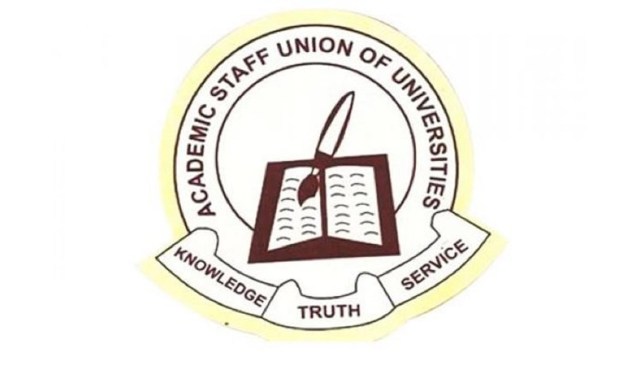Academic Staff Union of Universities, ASUU, is holding the Federal Government by the jugular, insisting on the discontinuance of Integrated Payroll and Personal Information System.
The Coordinator of the Calabar Zone of ASUU, Dr. Aniekan Brown who indicated that the strike will be enforced since the government is bent on continuing with the IPPIS in the university system.
Speaking with journalists, Brown said “The distraction known as IPPIS is a cesspool of corruption and Federal Government’s illicit commitment, hard-work, determination and treachery to forcibly migrate employees of Federal universities to the IPPIS platform.
“Government’s claim is not true. We challenge the authorities to the fact that we are not up to 71,000 members. The Minister for Finance, Budget and National Planning had earlier said 71,000 members of ASUU had accepted to register on the IPPIS platform. So, the Government’s statistics are faulty and mere propaganda.
“We will not resume work until Government addresses our demands, ASUU members have not been paid for between four and nine months. We are still in the trenches.
“We argued that it is a case of economic waste, because ASUU has been rejecting the IPPIS since 2013 and Government challenged us to produce an alternative. We took up the challenge and came up with UTAS,” he said.
Meanwhile, the Academic Staff Union of Universities (ASUU), Abuja Zone, has lent support to the stance of ASUU, Calabar zone, urging the Federal Government to implement the extant agreements aimed at developing Nigeria’s education sector.
Prof. Theophilus Lagi, Abuja Zonal Coordinator of ASUU, made the call at a news conference on Monday in Gwagwalada, Abuja, to press home the Union’s demands.
The News Agency of Nigeria (NAN), reports that the Abuja Zone comprises of the Federal University of Technology, Minna, Nasarawa State University, Keffi, Ibrahim Babangida University, Lapai, Federal University, Lafia, and University of Abuja.
Lagi called for renegotiation of the 2009 agreement, payment and mainstreaming of earned academic allowances into salaries, release of funds for revitalisation of the Nigerian university system, visitation panel to Federal Universities and proliferation of state universities among others.
According to him, in spite of the agitations with comprehensive and indefinite strikes to compel the Federal Government to address core demands of the Union; it has however, not shown any commitment or willingness to address the issues.
“You would recall that the Academic Staff Union of Universities declared a total, comprehensive and indefinite strike after an emergency NEC meeting on March 23, to compel the FG (Federal Government) to implement the MoA (Memorandum of Agreements) of Feb. 7, 2019.
“To address issues of the Renegotiation of the 2009 agreement and provision of Revitalisation Fund to public universities, Earned academic Allowances, visitation panel to public universities and proliferation of state universities and governance.
“It is eight months into the National strike, yet the FG has not shown any commitment or willingness to address the core demands of our Union.
“As you are aware, at least three meetings have been held between our union and the government in October through the mediation of the leadership of the National Assembly to resolve the issues in contention.
“Instead of addressing the core issues of the illegal withholding of salaries of Nigerian academics and others, the FG through the ministers of Labour and Finance, made an extraneous item, IPPIS, the precondition for lecturers’ resumption of duty.
The coordinator described as worrisome the stoppage of salaries of its members in February and the forceful migration to IPPIS, using the weapon of hunger and starvation to divide their ranks.
According to him however, the University Transparency and Accountability Solution (UTAS), is better suited for the system, as it recognises all agreements entered into between the government and university-based trade Unions.
Besides, he added that the UTAS platform ensured simultaneous payments of employees’ salaries and third party deductions like tax, pension, Union dues, cooperatives and bank loans, as well as ensured accountability and transparency.
“UTAS allows universities to adapt to the fluidity of nature, type and period of recruitment of staff; and facilitates storage and automated retrieval of personnel records for effective monitoring.
“That is why UTAS, developed through members’ meagre resources, is better suited for the University system,” Lagi said.

